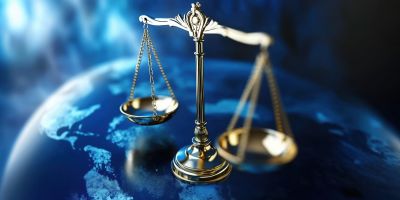How does learning about past racial injustice inform understanding current racial discrimination?
A recently released study coauthored by a Syracuse University researcher reveals how beliefs and political affiliations shape the public’s understanding about racial inequalities.
The paper, “Historical information and beliefs about racial inequality,” was released earlier this year and published in the academic journal Politics, Groups, and Identities.
The researchers—Steven White, Assistant Professor, Syracuse University, Maxwell School of Citizenship and Public Affairs, and Albert Fang, an independent scholar based in New York City—evaluated if learning about historical events, and especially the roots of racist politics and practices in America, impact people’s beliefs about systematic racial inequality.
They analyzed data from two key studies that surveyed adults who were randomly assigned to learn about the effects of systematic housing, education, and job discrimination that has negatively impacted Black communities throughout the United States.
According to Fang and White, they “find compelling evidence that such arguments can increase beliefs in the existence of Black-white racial inequality and increase beliefs in structural causes of racial inequality, particularly among white Republicans and Independents.” They also find evidence that such information can reduce racial resentment among these groups.
The researchers say this demonstrates that exposure to historical information can induce more nuanced thinking about contemporary racial inequalities in the United States.
The researchers conclude that more study is needed for more questions arising from the research. First, they did not observe consistent effects, especially among white Republicans, of historical information on both beliefs about racial inequality’s existence and beliefs in various structural causes of racial inequality.
“We suspect this reflects differences between acknowledging a problem, acknowledging the causes of a problem, and agreeing on the solution. This suggests that even if more Americans acknowledge that racial inequality exists, agreeing on solutions to meaningfully redress it may be more difficult,” the researchers write in the paper.
The complete paper, and its supporting materials, can be found here.
Reporters looking to connect with the authors of the report, please contact Ellen James Mbuqe, executive director of media relations at Syracuse University, at 412-496-0551 or ejmbuqe@syr.edu.


